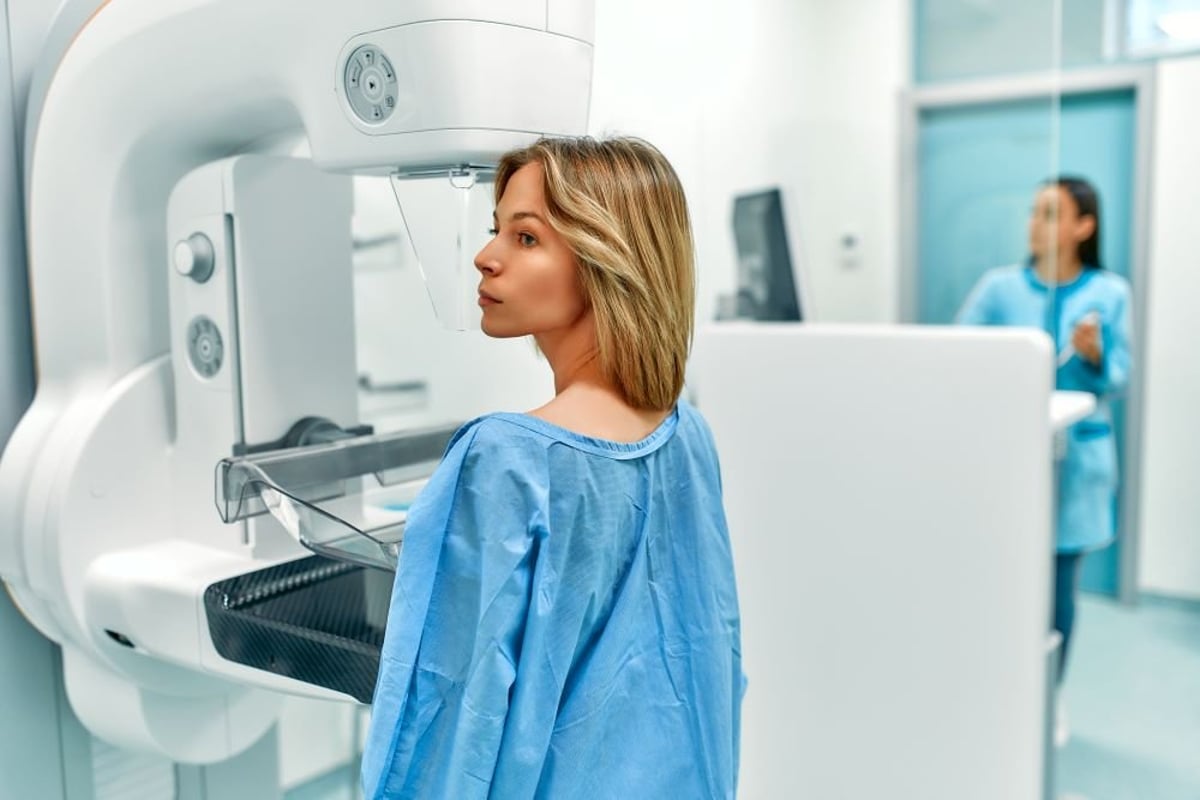AI-Supported Mammography Screen Reading Seems Promising

MONDAY, Aug. 7, 2023 (HealthDay News) -- Cancer detection is similar for artificial intelligence (AI)-supported mammography screen reading compared with standard double reading, according to a study published online Aug. 1 in The Lancet Oncology.
Kristina Lång, Ph.D., from Lund University in Sweden, and colleagues conducted a randomized, controlled, population-based trial involving women aged 40 to 80 years who were eligible for mammography screening at four sites in Sweden. Participants were randomly assigned to AI-supported screening or standard double reading without AI. The AI system provided an examination-based malignancy risk score, which was used to triage screening examinations to single-reading or double-reading risk scores. This study reported the prespecified clinical safety analysis for 80,033 women randomly assigned to AI-supported screening (40,003 women) or double reading without AI (40,030 women).
The researchers found that cancer detection rates were 6.1 and 5.1 per 1,000 screened participants in the intervention and control groups, respectively; the detection rate in the intervention group was above the lowest acceptable limit for safety. Recall rates were 2.2 and 2.0 percent in the intervention and control groups, respectively. In both groups, the false-positive rate was 1.5 percent. The positive predictive value of recall was 28.3 and 24.8 percent in the intervention and control groups, respectively. In the intervention group, 75 and 25 percent of cancers detected were invasive and in situ, respectively, compared with 81 and 19 percent, respectively, in the control group. Using AI, the screen-reading workload was reduced by 44.3 percent.
"The greatest potential of AI right now is that it could allow radiologists to be less burdened by the excessive amount of reading," Lång said in a statement.
One author disclosed ties to the pharmaceutical and medical technology industries.
Abstract/Full Text (subscription or payment may be required)
Editorial (subscription or payment may be required)
Related Posts
Type 1 Diabetes Is Tougher on Girls Than Boys: Study
FRIDAY, Sept. 23, 2022 (HealthDay News) -- Girls with type 1 diabetes may fare...
Strength, BMD of Lumbar Spine Reduced After Sleeve Gastrectomy in Teens
WEDNESDAY, April 19, 2023 (HealthDay News) -- For adolescents, sleeve...
Sexual, Emotional Abuse in Childhood May Up Multiple Sclerosis Risk
TUESDAY, April 5, 2022 (HealthDay News) -- Childhood sexual and emotional abuse...
Home COVID-19 Tests Can Cause Harm If Not Stored Safely: FDA
TUESDAY, March 22, 2022 (HealthDay News) -- At-home COVID-19 tests can cause...
